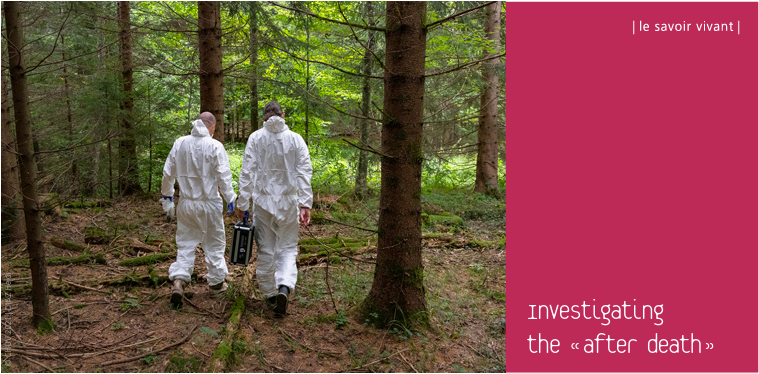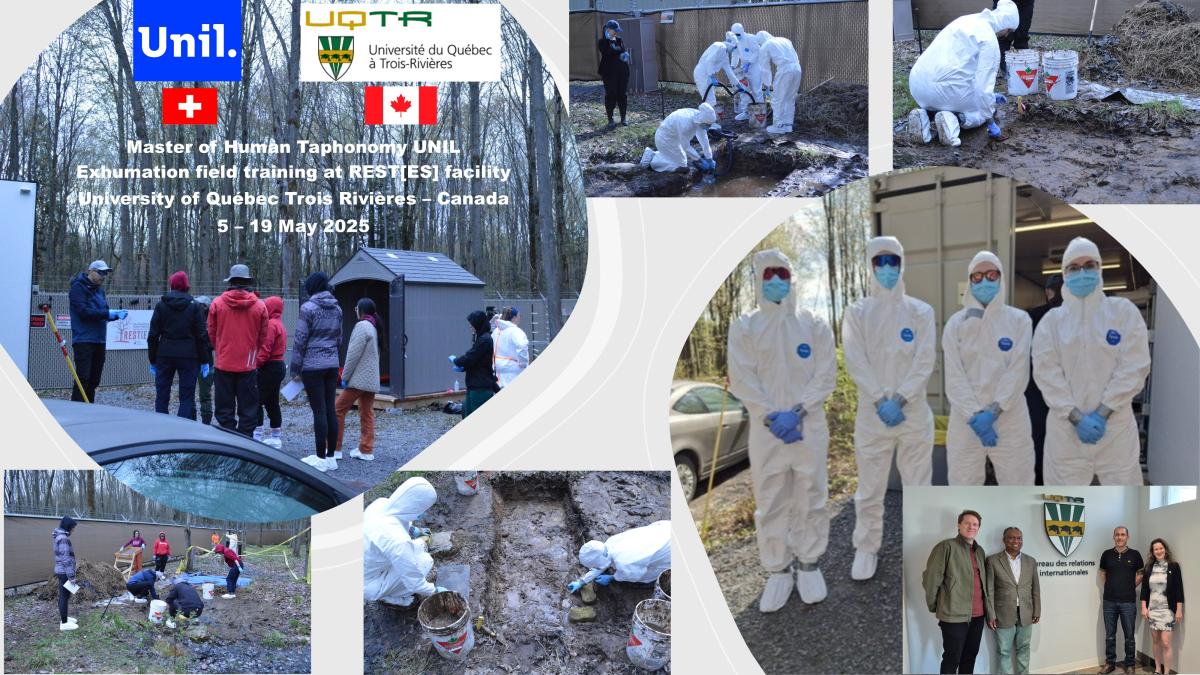
Swiss Human Institute of Forensic Taphonomy (SHIFT)
PRESENTATION | SERVICES | TRAINING & RESEARCH | FAQ
Training & Research
SHIFT's collaborators are involved in the following training and education programs:
Funeral care preparation training
for professionals in the funeral industry (Funeral company agents and employees, thanatopraxy agents). Training presentation
Academic teaching
Master MSc in Human Taphonomy
Implementation of a Master's degree (2 years, 120 ECTS) at the University of Lausanne (UNIL) in an international context (two weeks teaching in the field at the University of Quebec Trois-Rivières UQTR in Canada).
For more information, see the Master MSc in Human Taphonomics presentation document.

|
Copyright: © felix imhof |
Copyright: © Heidi Diaz – CHUV |
| UNIL podcast on La mort dévoilée par la science de la décomposition des corps humains | Presentation video of Master of taphonomy at UNIL on March 5, 2024. |
Podcast of the RTS program CQFD L'université de Lausanne lance un master en taphonomie humaine ou comment faire parler un cadavre
|
Pre-grade education |
||
|
Theme |
Public |
Affiliations * |
|
Forensic Medicine |
Medicine (Master) |
|
|
Biology and Genetic |
Religious Sciences (Bachelor) Forensic Sciences (Master) Biology (Master) |
|
|
Anthropology |
Forensic Sciences (Bachelor) Radiographer (Bachelor) Anthropology / Archaeology (Master) |
|
|
Toxicology and Entomology |
Radiographer (Bachelor) |
|
|
|
||
|
Postgraduate education |
||
|
Forensic Medicine and Anthropology |
Doctoral school in biomedical sciences |
|
|
|
||
* Faculty of Biology and Medicine (FBM), Faculty of Theology and Religious Sciences (FTSR), Faculty of Law, Criminal Sciences and Public Administration (FDCA), Faculty of Social and Political Sciences (SSP)
HES-SO: University of Applied Sciences of Western Switzerland (University of Health Vaud (HESAV))
The scientific research work carried out by SHIFT is built around disciplines such as (non-exhaustive list)
- Anthropology and archaeology
- Environmental, animal and plant genetics
- Biology including entomology
- Taphonomy




